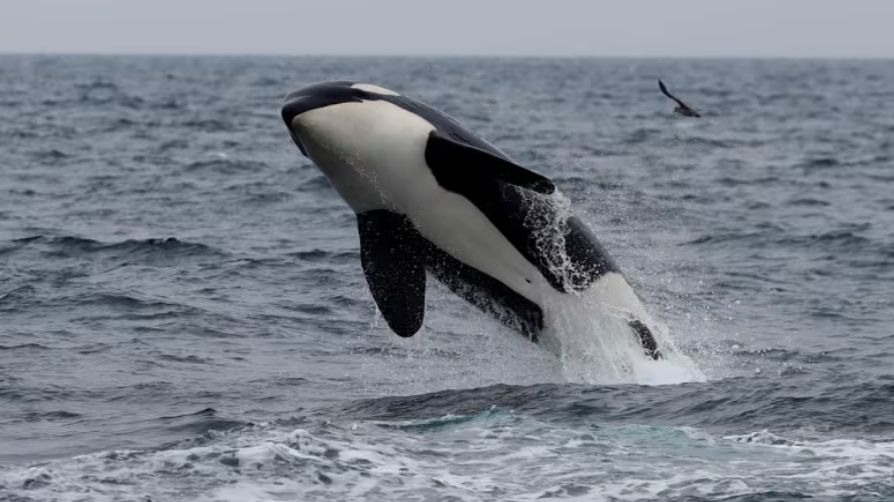A recent study on great white sharks in South Africa has raised concerns about the unexpected shift in their distribution patterns, suggesting that these predators are relocating from their usual habitats along the Western Cape coast to the Eastern Cape.
The primary reason behind this unusual behaviour appears to be a series of attacks by orcas, also known as killer whales.
The disappearance of great white sharks from eight beaches around Cape Town since 2019 sparked worries about the conservation of this iconic species. However, data from the study revealed a surprising trend. Between 2013 and 2019, great white shark catches in Algoa Bay at Gqeberha, in the Eastern Cape, increased tenfold. Simultaneously, records indicate orca attacks on great whites along the Western Cape coast dating back to 2015.
Nomfundo Nkabi, a scientist at the KwaZulu-Natal Sharks Board, shed light on the unique behaviour of the orcas. She explained, “Orcas are not just targeting white sharks as a whole animal; they’re specifically after the livers of the great white sharks. When we dissect the sharks, there’s no liver remaining. This indicates that orcas are exclusively interested in the livers. Research suggests that the liver of the great white shark is rich in nutrients, keeping the orcas satiated for a longer period, allowing them to hunt with full stomachs.”
Great white sharks, with a lifespan of up to 70 years and reaching lengths of 5 metres, are classified as vulnerable due to their declining global numbers. They play a crucial role in maintaining ecological balance by shifting their diet to adapt to changing conditions.
Nkabi highlighted the importance of great white sharks in keeping the marine ecosystem healthy, stating, “They adjust their diet to preserve the environment. If their preferred prey becomes scarce, such as teleost, they adapt to ensure that our oceans remain diverse and balanced.”
Scientists and conservationists will continue to monitor and study this phenomenon to better understand its implications for both species and the broader marine environment.
Number of Great White Sharks along Mossel Bay coast dwindling






